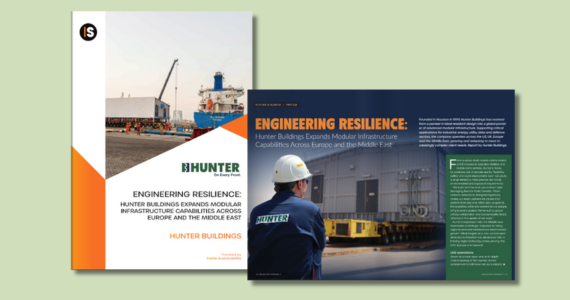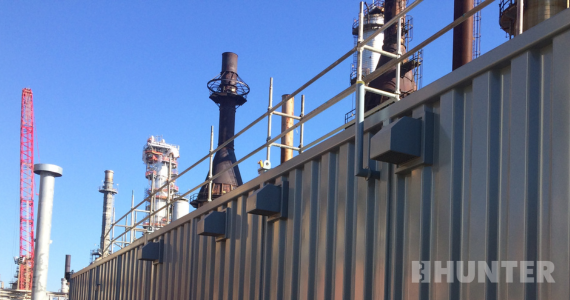In today’s complex industrial and energy landscapes, modular infrastructure plays a critical role in keeping operations safe, resilient and efficient. From extreme climates to high-security environments, purpose-built modular solutions are helping organizations around the world meet stringent operational and regulatory demands.
Inside Sustainability recently highlighted Hunter’s approach to modular design, exploring how flexible, bespoke structures support industrial, energy, utility, data and defense sectors across the globe. Managing Director Carlo Panetta and GCC Sales & Marketing Manager Vibin Vasudevan discuss how a focus on safety, sustainability and end-to-end delivery has driven expansion, particularly into the Middle East. Read the full article below.

Founded in Houston in 1999, Hunter Buildings has evolved from a pioneer in blast-resistant design into a global provider of advanced modular infrastructure. Supporting critical applications for industrial, energy, utility, data and defence sectors, the company operates across the US, UK, Europe and the Middle East, growing up and adapting to meet increasingly complex client needs.
From purpose-built central control rooms and E-Houses to operator shelters and mobile data centres, Hunter’s modular solutions are characterized by flexibility, safety and rapid deployment. Each structure is engineered to meet precise technical, environmental and logistical requirements.
“We build with the end-user in mind,” said Managing Director Carlo Panetta. “From extreme climates to stringent regulatory codes, our team delivers structures that perform from day one. What sets us apart is the expertise, pride and ownership our people bring to every project. We’ve built a culture uniting collaboration and accountability that’s reflected in the quality of our work.”
Hunter’s expansion into the Middle East represents a strategic response to rising regional demand and broader international growth. What began as a one-person operation led by Panetta has developed into a thriving regional headquarters serving the GCC, Europe and beyond.
UAE Operations
Driven by a clear vision and an in-depth understanding of the market, Hunter established its UAE base not as a satellite office but as a core part of its global operation. Today, the company operates two fully-equipped fabrication yards in the Emirates, supported by a diverse team of over 60 professionals. With in-house capabilities spanning design, engineering, manufacturing and logistics, Hunter offers a true end-to-end delivery model from the heart of the Middle East.
“The UAE offers all the fundamentals, skilled labour, excellent infrastructure and well-established transport corridors, making it a natural export hub,” Panetta noted. “Our success is about more than geography. It’s about investing in the right people, creating a culture that values initiative and fostering a team that genuinely cares about the quality of our product.”
Hunter’s strong team culture is central to establishing the company as a trusted partner for some of the world’s most complex modular infrastructure projects. From the UAE, Hunter exports large-scale technical buildings to key destinations across Europe and beyond. This is a testament to entrepreneurial resilience, strategic investment and a commitment to delivery that continues to drive the company’s success.
Bespoke Designs
Hunter’s modular buildings are designed to operate in the most demanding conditions, safeguarding people, assets and operations from hazards such as fire, gas leaks, extreme temperatures and explosive threats. Every structure is conceived with safety, resilience and adaptability in mind and configured to match the specific demands of each environment.
“Our structural integrity is underpinned by advanced blast-resistant design,” said Vibin Vasudevan, Sales & Marketing Manager GCC. “We also incorporate passive fire protection, thermal insulation to mitigate extreme external heat and sophisticated HVAC, filtration systems, ranging from chemical grade filtration to sand resistant setups depending on where the buildings are deployed.”
Hunter delivers ballistic-rated units for high-security environments, integrating detection, suppression and alarm systems. These buildings meet stringent forced entry resistance standards as defined by the US Department of State.
At the heart of Hunter’s offering is a truly bespoke approach. “We don’t operate with standard specifications,” added Panetta. “Every project is developed from the ground up to meet the client’s operational, environmental and compliance requirements. This makes our offering so versatile and trusted.”
This commitment to precision and large-scale delivery was exemplified in a recent project for global chemical company INEOS as part of Project ONE in Antwerp, one of the largest petrochemical investments in Europe. Hunter supplied a series of modular substations, equipment rooms and control rooms including one that measured 70m by 20m, weighing over 1,200 tonnes.
The solution was fully manufactured at Hunter’s facility in Al Hamriyah, UAE and shipped to Belgium in a single piece. “Executing this move requires more than just fabrication expertise,” said Panetta. “It demands complete alignment between engineering, logistics and the client. Our longstanding supplier relationships and internal planning capabilities were critical in making it possible.”
Transportation of this sizeable unit was a major undertaking. “We faced multiple engineering challenges, such as how to position a self-propelled modular transporter (SPMT) beneath the building to get on the barge,” Panetta continued. “Delivering the building fully assembled significantly reduced work on-site. It’s a huge achievement for our engineering team.”
Supply Chains
This level of execution is supported by a carefully structured supply chain. Hunter works with a rotating network of three-to-four trusted suppliers for each component, ensuring both quality and supply resilience.
“Single sourcing doesn’t always yield the flexibility or consistency we need,” said Panetta. “Instead, we maintain an engaged, competitive supplier base. Each partner gets regular business, and we share feedback to help improve products. We’re contributing to the development of our suppliers, while also keeping standards high and costs predictable for clients.”
Vasudevan agreed: “Our suppliers always know what’s coming. We share forecasts so they can manage tock and plan production. These relationships have been built over many years; it’s a collaborative model that mirrors how we work internally.”
A Green Future
Hunter’s production model offers clear sustainability advantages. By manufacturing in-house, the company significantly reduces on-site traffic, cuts waste through effective material reuse and enables more efficient, predictable project timelines. This controlled approach improves quality assurance and lowers the overall environmental impact.
A major part of this strategy is Hunter’s use of hybrid-ready battery storage systems. These are charged either by solar power during daylight hours or by drawing off-peak electricity from the grid, reducing carbon emissions and avoiding dependence on diesel generators.
“In the UAE, power consumption during the summer can put enormous pressure on the grid,” Panetta explained. “Historically, businesses in industrial zones have turned to generators to cope with peak loads. Our battery storage packs offer a far more efficient and sustainable solution, one that aligns with our long-term environmental and operational goals.”
This progressive approach reflects how far the company has come. From its origins producing blast-resistant containers, Hunter has grown into a key player in high-spec modular design, supporting sectors undergoing rapid change, such as digital infrastructure and the global energy transition.
Surging demand for modular data centres deiven by the rise of AI, cloud computing and digital transformation is one of the most dynamic areas of Hunter’s portfolio. These facilities require integrated cooling, filtration and energy systems, all of which the company delivers through its fully customizable, plug-and-play solutions.
As Hunter prepares to showcase its innovations at ADIPEC in Abu Dhabi this November, it does so with a clear sense of purpose, one rooted in technology, teamwork and a commitment to building the future.
“In under a decade, we’ve gone from producing ISO container units to delivering multi-storey substations that we can ship, fully assembled, from the UAE to Europe,” Panetta concluded. “When I arrived in the region 18 years ago, setting up shop here wasn’t straightforward. Now, seeing what we’ve built, our people, our partnerships and our capabilities gives me a real sense of pride in how far we’ve come and confidence in where we’re heading.”


